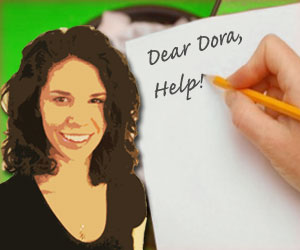Repetitive Strain Injury: The Hidden Lab Hazard
by
What was the most difficult part of *your* graduate school career and how did you overcome it?
– Sabine, graduate student
.
.
Dear Sabine,
I always joke that my biggest challenge was “all of the above”. I had a challenging thesis project and personal struggles, and for many years I was not sure I would graduate. The biggest obstacle came in my 5th year when I developed repetitive strain injury (RSI), specifically tendonitis in my elbows. I discuss this topic in great detail in my book, and I am surprised at how many people are grateful that I bring this silent epidemic to the surface. In fact, the first entry I wrote in Gradshare.com was an Expert Opinion column about RSI under Work-Life Balance.
If you don’t know what repetitive strain injury is, you are lucky, but I encourage you to keep reading. When I interviewed former graduate students for my book 28 out of 100 experienced RSI to some extent, ranging from mild discomfort to excruciating pain in their arms and hands leaving them unable to type for weeks or months. Unfortunately, I was in the latter category, which is why RSI was definitely the biggest challenge in my graduate career. Repetitive strain injury, which refers primarily to injury in the hands and arms due to extensive typing and pipetting, can be very sneaky. One day, you notice mild discomfort and the next day your elbows are swollen and you cannot even write a check. Early warning signs include neck pain and back pain, which are frequently ignored for years before full-blown RSI hits. The best prevention is a comfortable posture during typing and drequent breaks which include stretching. If you have persistent pain or discomfort, seek help. You might be able to nip this debilitating problem in the bud.
So, how did I overcome this condition? In six years, I went from being unable to hold a book without pain to writing a doctoral dissertation, eight publications during graduate school and my postdoc, and then to publishing a book about graduate school. My strategy was to remain resourceful and to keep taking small steps every day. Some days the steps were backwards, but I kept trying (analogy to graduate school?). For example, I spent a lot of time learning voice-activated soft-ware, which was not helpful in the end. (Note: voice activated soft-ware has come a long way since then, so by all means give it a try if typing/mousing is painful. Even if it only cuts down on typing partially, it could make a big difference in your condition).
When RSI hit me first, I was in so much pain I could not even do the exercises recommended by my doctor and physical therapist. My doctor recommended surgery, but I refused. This is of course a personal decision, one to be made with your doctor. I sought help from alternative therapies (yoga, meditation, Feldenkrais) and eventually I got to the point where I could type for a few minutes at a time. Then I tried different keyboards, mice, chairs, and voice-activated software until I found the most comfortable combination. I attended RSI support groups, read every book I could about RSI, did strengthening exercises every day, and used my savings to pay for therapeutic massage. It is safe to say that overcoming RSI (and the stress it caused) was a full-time job for the first 6 months. My recovery was mostly in the positive direction with a few setbacks caused by stress or excessive lifting or typing on certain days (the setbacks usually lasted a few days to a week). This journey changed my life. Prior to repetitive strain injury, I had lifted weights twice a week, swam with the Masters Club three times a week, and worked on my thesis 6 days a week. During my recovery I felt lucky to do light aerobic exercise without pain. I typed my thesis a few minutes at a time using break timer software (called RSIGuard) to enforce frequent breaks and stretches and avoid re-injury.
We always encourage readers to share their experiences, and this is certainly a topic where we would be very interested in your feedback. To share your story leave your comments below.
.
Wishing you the best,
Dora Farkas, Ph.D.
Author, “The Smart Way to Your Ph.D.”
Disclaimer: This column is not meant to give you medical advice. If you experience any physical discomfort during typing or pipetting seek help from a medical professional.
.
Dora Farkas, Ph.D. is the author “The Smart Way to Your Ph.D.:200 Secrets from 100 Graduates,” and the founder of PhDNet, an online community for graduate students and PhDs. You will find links to her book, monthly newsletters, and discussion board on her site. Send your questions to [email protected] and keep an eye out for them in an upcoming issue!
Stay tuned for the next Dear Dora in two weeks! In the meantime, check a few of Dora’s recent posts:
- Take My Figure Off Your Poster…Or Else.
- How to Tell on Someone Like an Adult
- Who Opened the Thiols? Oh- That’s Your Breath?!
- Reviewing Papers from Your Past: Is It Legal?
- Is It 2-Hour or 2-Week Notice? Telling the Boss You’re Leaving
- My Boss Treats Me Like Rodney Dangerfield – No Respect.
- So You’re Saying 50 is Too Many?
- The Job Hunt: Move with My Spouse or Chase a Paper
- Is Joining Two Labs Twice the Fun?
- Am I Stuck with this Boring Project?
- Just Two Weeks to Study for My Qualifying Exam?!
Submit your questions to Dora at [email protected], or use the comment box below!


